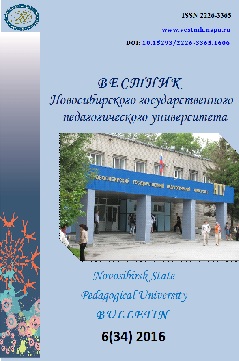Прагматический макрокомпонент и способы его семантизации в электронной базе данных
The pragmatic component and ways of its semantization in the electronic database
Author(s): Elena Gennadjevna BasalaevaSubject(s): Lexis, Historical Linguistics, Philology
Published by: Новосибирский государственный педагогический университет
Keywords: Lexical meaning; the structure of pragmatic macrocomponent; the database of pragmatically marked vocabulary
Summary/Abstract: The article describes the structure of the electronic database "Pragmatically marked vo-cabulary of the Russian language", identifies the structure of the pragmatic component of the word and the means of its representation in the dictionary. The author notes that nowadays, there are different approaches to identifying the place, the volume of the pragmatic component within the structure of the lexical meaning. On this basis, the question of the methods and prin-ciples of lexicography of lexemes belonging to the category of pragmatically marked is solved differently. Therefore, the most important objectives of the study are to identify the peculiarities of the pragmatic meanings and find their reflection in the dictionaries of various types. In par-ticular, the author, on the basis of the works of the leading language schools, considers the fol-lowing structure of the pragmatic macrocomponent: emotional assessment, social status, ideol-ogy, gender and age, ethnic and cultural components. The ways of presenting this information in dictionaries are described, the system of markers is suggested. One of the ways to systematize the identified pragmatic indicators is to create an electronic database of pragmatically marked fragments of the language lexical system. The author presents the principles the database being created is based on: the selection criteria of language units; their lexicographical interpretation in the existing dictionaries; processes of seme and semantic variation in different types of dis-course; characterization of pragmatic semantic component represented by a developed system of markers, the different types of lexicographical commentary. The advantage of the database being created is seen in the possibility to provide full information about a pragmatically marked word and its dynamics, as well as possibility to search in database by any parameter, thereby identifying the different language groups, united by certain pragmatic meaning. The database focuses on a wide range of users: researchers, linguistic experts, interpreters and teachers of Russian as a second, foreign and native language.
Journal: Вестник Новосибирского государственного педагогического университета
- Issue Year: 6/2016
- Issue No: 6
- Page Range: 112-125
- Page Count: 14
- Language: Russian

